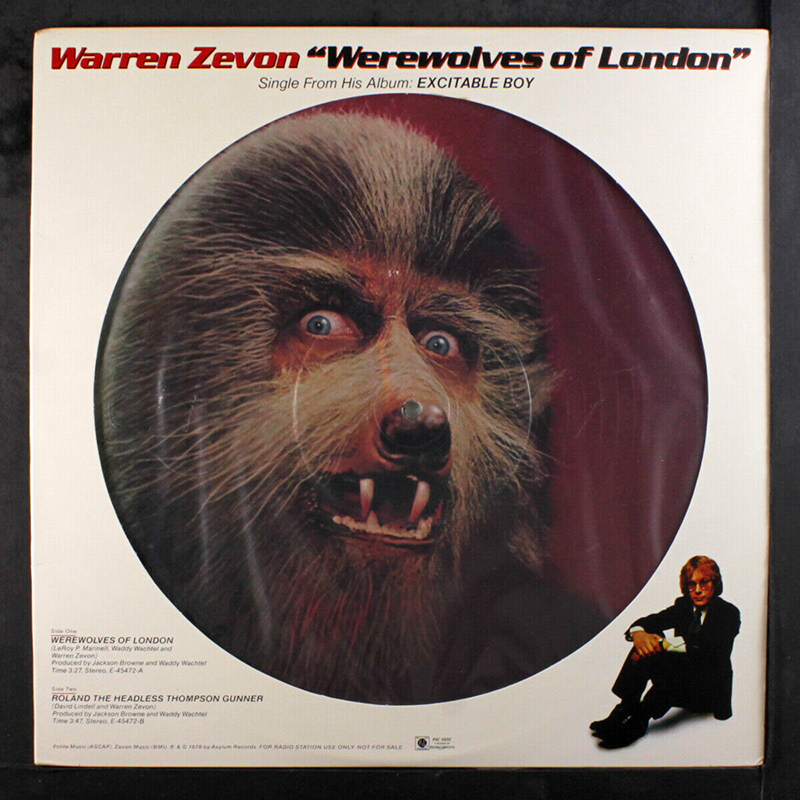
It’s such a fine line between stupid and clever. Somehow, this song manages to be both. I’ve heard “Werewolves of London” on the radio most of my life without ever giving it much thought – until today.
You might know that this was the first single off Excitable Boy, Zevon’s third solo album. You might even know that it stayed in the Billboard Top 40 for a month, reaching number 21 on the Hot 100 in May of 1978. But did you know Mick Fleetwood and John McVie are playing on it? Wikipedia, where you at?
The song began as a joke by Phil Everly (of The Everly Brothers) to Zevon in 1975, three years before the recording sessions for Excitable Boy. Everly had watched a television broadcast of the 1935 film Werewolf of London and “suggested to Zevon that he adapt the title for a song and dance craze.” Zevon, LeRoy Marinel and Waddy Wachtel played with the idea and wrote the song in about 15 minutes, all contributing lyrics that were transcribed by Zevon’s then-wife Crystal. The song is in the key of G major, with a three-chord progression that runs throughout. However, none of them took the song seriously.

Not long after, Jackson Browne saw the lyrics and thought it had potential, so he started playing “Werewolves” live. (T-Bone Burnett also played it on the first leg of Bob Dylan’s Rolling Thunder Review in 1975.) Zevon thought about putting it on his second solo album in 1976, but for some reason, decided against it.
According to Wachtel, “Werewolves of London” was “the hardest song to get down in the studio I’ve ever worked on.” They tried at least seven different configurations of musicians in the recording studio before being satisfied with McVie and Fleetwood’s contributions. The protracted studio time and musicians’ fees led to the song eating up most of the album’s budget.
Zevon later said of the song, “I don’t know why that became such a hit. We didn’t think it was suitable to be played on the radio. It didn’t become an albatross. It’s better that I bring something to mind than nothing. I still think it’s funny.” He also described “Werewolves of London” as a novelty song, “[but] not a novelty the way, say, Steve Martin’s ‘King Tut’ is a novelty.”
